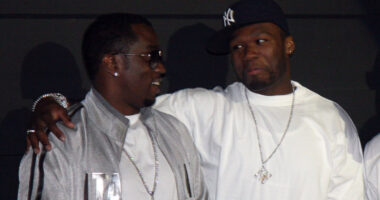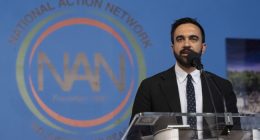
To include your event in the Briefing and Live Calendar, please fill out this form.
Weather: Partly cloudy. Highs around 70. Low in the mid-40s.
- Daily weather briefing from the National Weather Service in Jacksonville here.
- Drought conditions here. (What is the Keetch-Byram drought index?).
- Check today’s tides in Daytona Beach (a few minutes off from Flagler Beach) here.
- Tropical cyclone activity here, and even more details here.
Today at a Glance:
The three-member East Flagler Mosquito Control District Board meets at 10 a.m. at District Headquarters, 210 Airport Executive Drive, Palm Coast. Agendas are available here. District staff, commissioners and email addresses are here. The meetings are open to the public.
The Bunnell City Commission meets at 7 p.m. at the Government Services Building, 1769 East Moody Boulevard, Bunnell, where the City Commission is holding its meetings until it is able to occupy its own City Hall on Commerce Parkway in 2025. To access meeting agendas, materials and minutes, go here.
The Flagler County Beekeepers Association holds its monthly meeting from 6 to 8 p.m. at the Flagler Agricultural Center, 150 Sawgrass Rd., Bunnell (the county fairgrounds). This is a meeting for beekeepers in Flagler and surrounding counties (and those interested in the trade). The meetings have a speaker, Q & A, and refreshments are served. It is a great way to gain support as a beekeeper or learn how to become one. All are welcome. Meetings take place the fourth Monday of every month. Contact Kris Daniels at 704-200-8075.
Nar-Anon Family Groups offers hope and help for families and friends of addicts through a 12-step program, 6 p.m. at St. Mark by the Sea Lutheran Church, 303 Palm Coast Pkwy NE, Palm Coast, Fellowship Hall Entrance. See the website, www.nar-anon.org, or call (800) 477-6291. Find virtual meetings here.
Byblos: The Library of America just delivered Black Writers of the Founding Era, 1760-1800, a 700-page addition to the ever-growing magnificence of the Library’s unique anthologies: not just compendiums of period pieces, but chronologically arranged pieces that give you the immersive feel of the era, like reading a great correspondence. It’s history in real time, written by men and women who usually were unknowing atoms of greater explosive power than they knew, in historical movements not yet drawn out. Those volumes have included the two years of the debates on the Constitution, World War I’s peace movement, World War II, the civil rights era, the Vietnam war, the Civil War, Reconstruction, American sermons, two superb volumes of American speeches (words more than ideas keep remaking this nation: a double-edged sword, because words can be no less lethal and empty than ideology; for every Dream speech, there’s a few Calhoon poisons, and Reagan’s plagiarisms are more often remembered and quoted than Adlai Stevenson’s original wit). Now we have Black Writers of the Founding Era, edited by James Basker, a (white) American Studies and literary history specialist of the 18th century at Barnard College. We get writers we, most of us anyway, have never heard of, which is just the point: this book has shades of the 1619 Project, upending our assumptions and finally re-placing voices of the past in their rightful place: Jupiter Hammond, Phillis Cogsqwell, Phillis Wheatley, Newton Prince, Cuffee Wright, Sezor Phelps, and so on. It is, as the Library’s blurb puts it, “by far the richest and most expansive anthology of its kind ever assembled,” writers enslaved and free, painters, poets, preachers and cooks, those leaves of grass so long trampled and buried under whiter presumptions. They may not have known the weight of their voices yet, but as James Albert Ukawsaw Gronniosaw put it in his life narrative (this one I vaguely recalled having been anthologized in the Library’s Slave Narratives a couple of decades ago), “It is possible the circumstance I am going to relate will not gain credit with many; but this I know, that the joy and comfort it conveyed to me, cannot be expressed and only conceived by those who have experienced the like.”
—P.T.
Now this: James G. Basker: Black Writers of the Founding Era
![]()
The Live Calendar is a compendium of local and regional political, civic and cultural events. You can input your own calendar events directly onto the site as you wish them to appear (pending approval of course). To include your event in the Live Calendar, please fill out this form.
January 2025

Monday, Jan 13 – Monday, Oct 13
Flagler County Commission Workshop
Government Services Building

Monday, Jan 27
East Flagler Mosquito Control District Board Meeting

Monday, Jan 27
Nar-Anon Family Group
St. Mark by the Sea Lutheran Church

Monday, Jan 27
Flagler County Beekeepers Association Meeting
Flagler Agricultural Center

Monday, Jan 27
Bunnell City Commission Meeting

Tuesday, Jan 28
Palm Coast City Council Workshop

Tuesday, Jan 28
Flagler County School Board Information Workshop
Government Services Building

Tuesday, Jan 28
Book Dragons, the Kids’ Book Club, at Flagler Beach Public Library
315 South 7th Street, Flagler Beach

Tuesday, Jan 28
NAACP Flagler Branch General Membership Meeting
African American Cultural Society

Tuesday, Jan 28
Flagler County School Board Meeting
Government Services Building

Tuesday, Jan 28
‘Crimes of the Heart’ at St. Augustine’s Limelight Theatre

Tuesday, Jan 28
Random Acts of Insanity Standup Comedy
Cinematique of Daytona Beach
No event found!
For the full calendar, go here.
![]()

Our philosopher tells us, that amongst animated beings, the weakest is ruled by the strongest. This we are to suppose is a law of nature–a law for man–that whoever is stronger than his neighbor, may seize him and sell or force him to till his ground, or whoever is wiser than another, may over reach and despoil him of his property–What becomes of the generous principle which teaches the strong to protect the weak? No, this is not the nature of man–the savage does not so–’tis the civilized European that takes advantage of the superiority, civilization gives him over the untutored African? and robs him of the liberty to indulge himself in luxury–‘Tis the civilized European that corrupts the African, and prompts him like the white to betray his brother and such philosophers as Rusticus, would persuade the European that he is right. Neither is the sheep hairy African inferior in strength of body or mind to the European. Civilization is all that gives the boasted superiority, and according to our philosopher’s principle, the most powerful nation has a natural right to seize on the property and persons of the weaker. So not only the sheep hairy negro is born for slavery, but the horse hairy native of America, or in short, people of black, brown or red hair, if another people have force or cunning to subdue them. Most admirable philosophy! After all his pains and trouble to convince the world that from our inferior nature, we black, sheep hairy negroes are marked out for slaves.
–From a letter to the editor of the Gazette of the United States, by Africanus, March 6, 1790, in Black Writers of the Founding Era, Library of America (2023).
The Cartoon and Live Briefing Archive.










